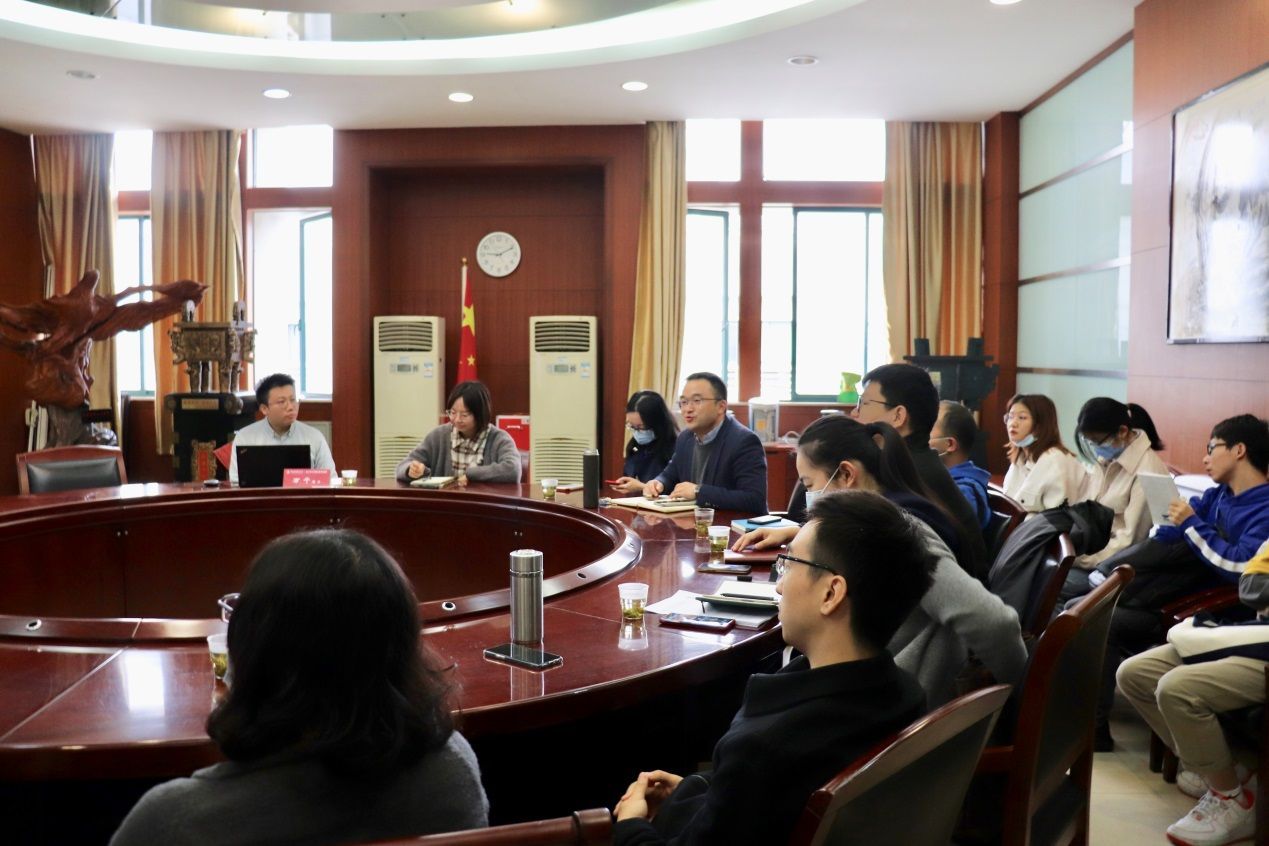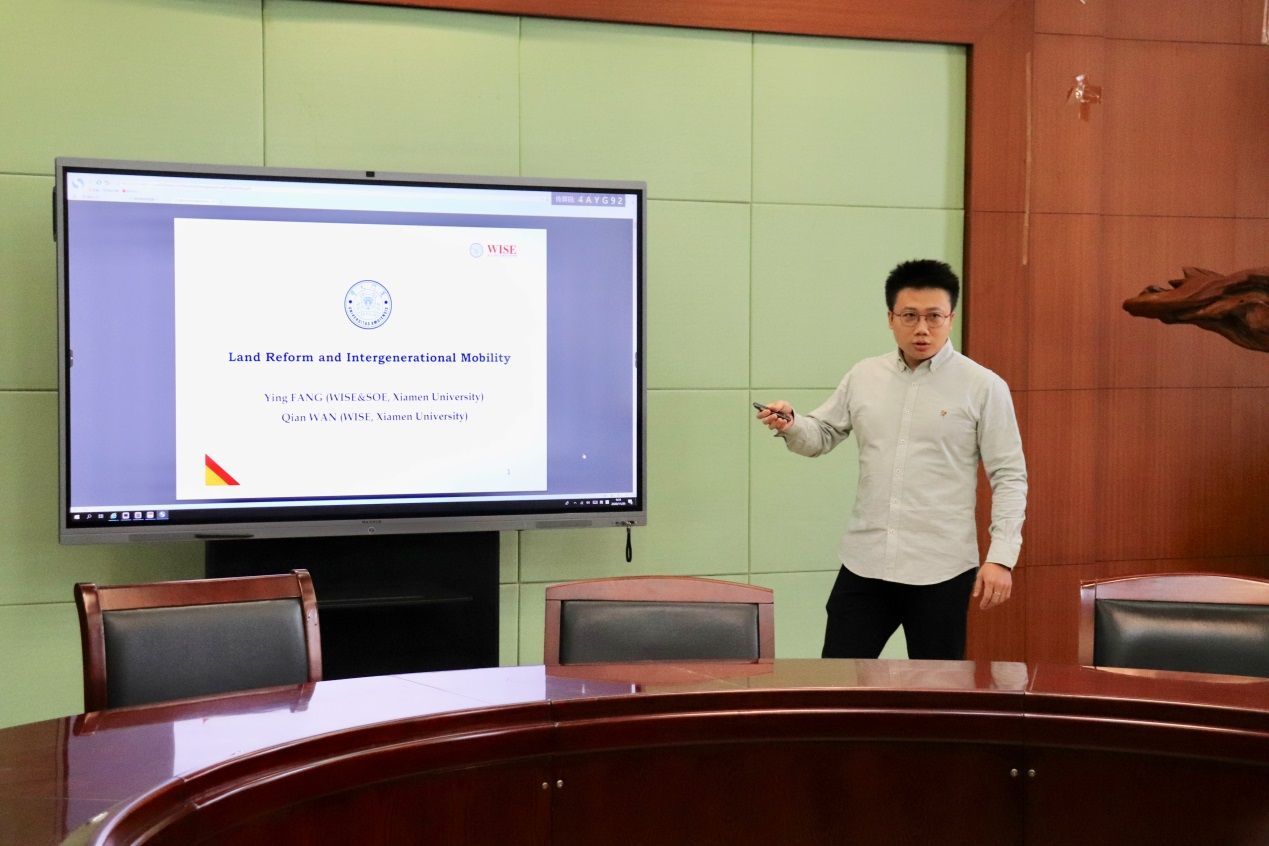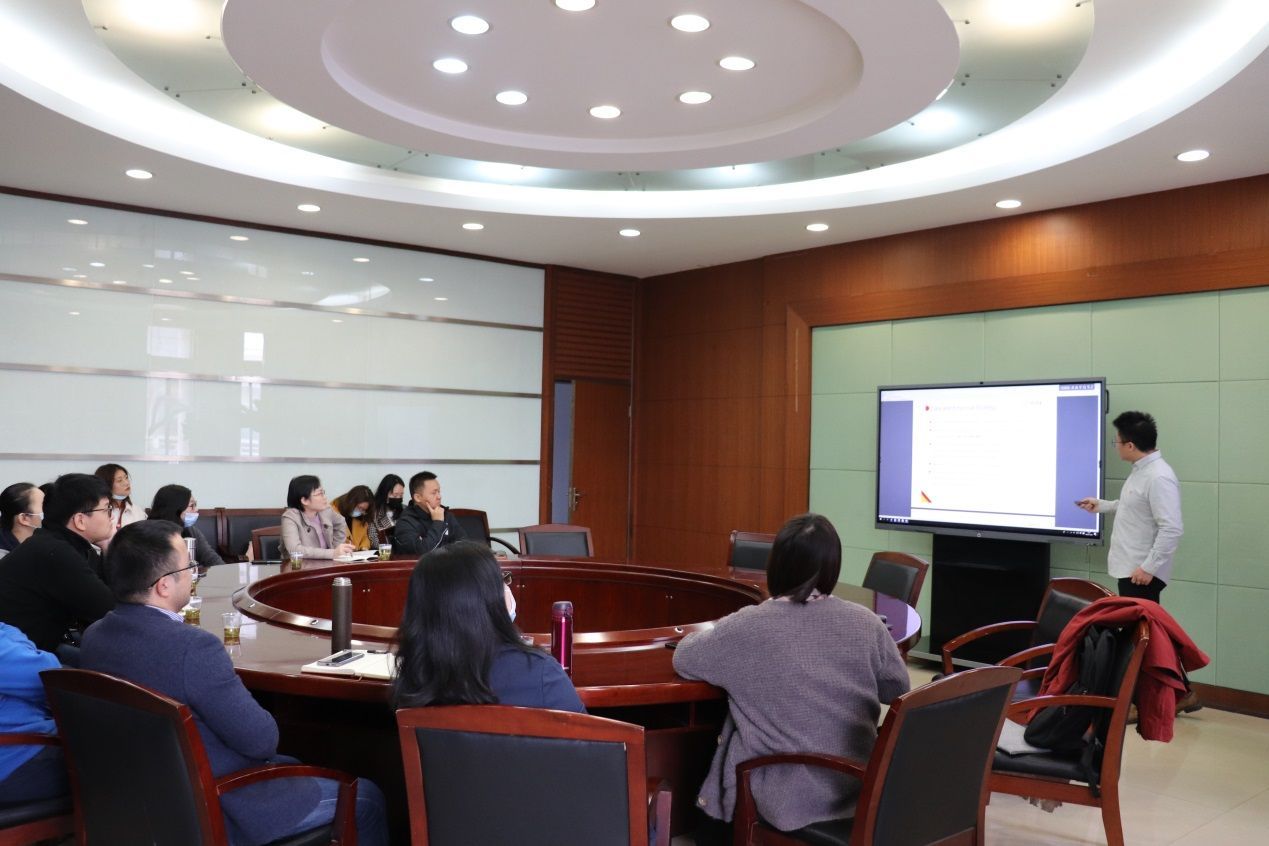On the morning of 20 November 2020, the fourth session of "Xixian Forum of Income Distribution and Public Finance", co-organized by the School of Public Finance and Taxation and the Innovation Base for Income Distribution and Public Finance of ZUEL, was successfully held in 603 Wenquan Building. Dr Wan Qian from the Wang Yanan Institute for Studies in Economics, Xiamen University, was invited to deliver a lecture on the theme of "Land Reform and Intergenerational Mobility" as the guest speaker of the 4th Xixian Forum. The forum was chaired by Professor Lu Yuanping, Executive Dean of IIDPF. Over twenty students and faculty members attended the forum, including Associate Professor Ma Yuanyuan, Associate Professor Tian Binbin and Dr Wan Xin.

Dr Wan gave a keynote speech on “Land Reform and Intergeneration Mobility”, Using the 1978-1984 land reform in rural China as an example, he explores in depth the impact of land reform on intergenerational mobility. To begin with, Dr Wan briefly explained the background, main findings and contributions of his research respectively, pointing out that the impact of land reform on inequality has been less studied in academia from the perspective of intergenerational mobility. Dr Wan then explained three mechanisms by which land reform (the household contract responsibility system) affects intergenerational mobility through household investment in human capital: the substitution effect, the income effect and the public effect. The theoretical model and empirical test sections of their research are also analysed and elaborated.

At the end of the presentation, Dr Wan summarised the findings of his research. In rural China, land reform has increased the educational attainment of children and reduced intergenerational mobility. Land reform has increased rural households' investment in human capital through higher farm incomes. More educated parents spend a higher proportion of their money on investing in their children's human capital than less educated parents. As a result, land reform has widened the gap in human capital investment for children from poor rural families in China.

Dr Wan Qian's spectacular speech aroused the interest and resonance of the students and faculty present. During the Q&A session, students and faculty actively participated in the interaction. Based on questions from Prof. Lu Yuanping and other scholars, Dr Wan provided detailed answers on the introduction of land reform in China, proxy variables for intergenerational mobility, data sources, substitution effects between urban and rural areas, the upper limit of parents' investment in their children's education, and the intergenerational impact of education levels. The forum ended with a round of applause.

